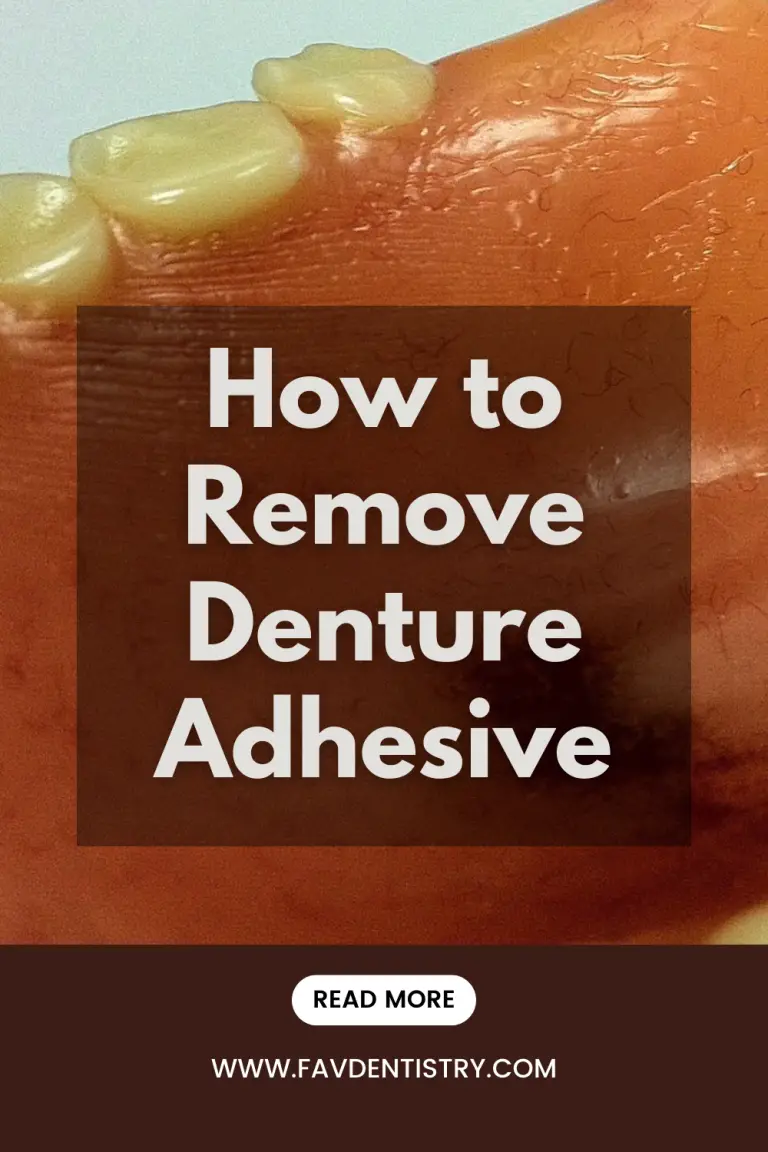I Hate My New Dentures What Can I Do : Solutions for Discomfort
Last Updated on 6 months by DR. ALBIN SIPES
If you hate your new dentures, schedule an appointment with your dentist to discuss your concerns and explore potential solutions. It’s essential to communicate openly with your dentist to address any discomfort or dissatisfaction with your new dentures.
Having dentures fitted can be a significant adjustment and may lead to feelings of discomfort or dissatisfaction. However, it’s essential to address these concerns with your dentist rather than suffer in silence. By communicating openly, you can work together to find a solution that makes wearing your dentures a more comfortable and positive experience.
Various options and adjustments can be made to improve the fit and comfort of your dentures, so don’t hesitate to seek help. We’ll explore some potential reasons for your discomfort and provide tips for addressing them to improve your experience with your new dentures.
Adjusting To New Dentures
Adapting to new dentures can be a challenging experience for many individuals. Understanding the common issues and the typical adjustment period can help alleviate concerns and enable a smoother transition to a comfortable and functional denture experience.
Understanding The Common Issues With New Dentures
When transitioning to new dentures, it is common to experience a range of issues that can impact comfort and functionality. These may include difficulties speaking and eating, increased salivation, sore spots, and a feeling of fullness or discomfort in the mouth.
Initial Discomfort And Typical Adjustment Period
Initial discomfort is natural as the mouth adjusts to the presence of new dentures, and it often takes time for the jaw and gums to adapt to the prosthetic. The typical adjustment period for new dentures can range from several weeks to a few months as the mouth and oral muscles acclimate to the new appliance.
Managing Initial Discomfort
Adjusting to new dentures can be a challenging and uncomfortable experience for many individuals. However, several strategies and remedies can help manage the initial discomfort associated with wearing dentures. By incorporating these techniques into your daily routine, you can ease the transition and alleviate any pain or discomfort that may arise.
Daily Routines To Ease Into Wearing Dentures
Creating a daily routine tailored explicitly to the adjustment period of wearing new dentures can significantly ease discomfort and allow for a smoother transition. Here are some essential practices to consider:
- Start with soft foods: Initially, focus on consuming soft or liquid-like foods to minimize the strain on your new dentures.
- Gradual increase in wear time: Begin by wearing your dentures for shorter periods each day, gradually extending the duration as you become more comfortable.
- Proper cleaning and maintenance: Adhering to a consistent cleaning routine for your dentures can help prevent irritation and discomfort caused by bacteria or debris buildup.
Pain Relief Methods Suitable For Denture Wearers
For individuals experiencing discomfort or pain while adjusting to new dentures, various pain relief methods can offer relief. Consider the following approaches:
- Over-the-counter pain relievers: Non-prescription pain medications, such as acetaminophen, can help alleviate any soreness or discomfort associated with wearing dentures.
- Denture adhesive adjustments: Seeking assistance from your dentist to adjust the fit and application of denture adhesives can address discomfort caused by improper alignment.
- Soothing oral gels: Utilizing specialized oral gels designed for denture wearers can provide temporary relief from any irritation or sore spots.
When Dentures Don’t Fit Right
If you’ve recently acquired new dentures and find yourself thinking, “I hate my new dentures. What can I do?” it’s crucial to determine if they fit correctly. The discomfort and frustration associated with ill-fitting dentures can significantly impact your daily activities and overall well-being. Let’s delve into the signs that your dentures require professional adjustment and the steps to take if they cause persistent pain.
Signs That Your Dentures Require Professional Adjustment
- Persistent Discomfort: If your dentures cause constant pain or discomfort, especially after wearing them for an extended period, it’s a clear sign that they need adjustment.
- Difficulty Chewing: Difficulty in chewing or speaking, including slippage of dentures while eating, indicates a need for professional adjustment.
- Mouth Sores: If you develop mouth sores or ulcers due to the rubbing of ill-fitting dentures, seek professional help immediately.
Steps To Take If Dentures Cause Persistent Pain
- Consult a Denturist: Schedule an appointment with a qualified denturist or dentist to assess and adjust your dentures for a proper fit.
- Avoid DIY Solutions: Refrain from attempting DIY adjustments, as they can lead to further complications and damage to your dentures.
- Communicate Your Concerns: Clearly communicate your discomfort and specific areas of irritation to the dental professional, empowering them to make precise adjustments to your dentures.
- Follow-Up: Attend any follow-up appointments as recommended by the denturist to ensure the adjustments have resolved your discomfort.
‘I Hate My New Dentures What Can I Do’: Professional Solutions.
If you find yourself struggling with discomfort or dissatisfaction after getting new dentures, there are professional solutions available to address your concerns. Here are some practical steps you can take to improve the fit and comfort of your new dentures:
Scheduling A Denture Reassessment With Your Dentist
Consulting with your dentist for a denture reassessment is crucial if you’re experiencing discomfort or issues with your new dentures. Your dentist can evaluate the fit, bite, and overall comfort of your dentures to make necessary adjustments or recommendations to improve their performance.
The Role Of Relining And Rebasing In Denture Comfort
Relining and rebasing are two techniques that can enhance the comfort and fit of your dentures. Relining involves adding new material to the inside of the denture to improve the fit against the gums, while rebasing consists of creating a new base for the denture. Both procedures can address changes in the shape of your mouth and improve the overall fit of your dentures.
Exploring The Option Of A Denture Adhesive For Better Fit
If you’re still experiencing issues with the fit of your dentures, using a denture adhesive can provide added stability and comfort. A denture adhesive can help create a secure bond between your dentures and your gums, offering improved retention and reducing movement during eating or speaking.
Home Remedies For Sore Gums
Struggling with sore gums from new dentures can be a frustrating and uncomfortable experience. While it’s essential to seek professional dental care for long-term relief, there are effective home remedies that can help alleviate the discomfort. From natural soothing methods to dietary adjustments, these home remedies can promote healing and provide temporary relief for sore gums caused by new dentures. Let’s explore some ways to ease the discomfort and encourage gum health at home.
Natural Ways To Soothe Sore Gums At Home
When dealing with sore gums, natural remedies can offer relief without harsh chemicals or medications. Here are a few natural ways to soothe your sore gums at home:
- Rinsing with saltwater: Gently swishing a saltwater solution in your mouth can help reduce inflammation and promote healing.
- Applying aloe vera gel: The soothing properties of aloe vera can provide relief and encourage gum tissue repair.
- Using tea bags: Placing a cooled, steeped tea bag against the sore gums can help reduce pain and inflammation.
- Applying clove oil: Clove oil has natural analgesic and antibacterial properties that can help alleviate gum pain.
Nutritional Adjustments To Promote Healing
In addition to natural remedies, making certain nutritional adjustments can support gum health and aid in the healing process. Consider incorporating these nutrients into your diet:
- Vitamin C: Found in citrus fruits, bell peppers, and leafy greens, vitamin C is essential for gum health and tissue repair.
- Vitamin E: Incorporate foods like nuts, seeds, and spinach to benefit from the anti-inflammatory properties of vitamin E.
- Omega-3 fatty acids: Consuming sources of omega-3, such as salmon and flaxseeds, can help reduce inflammation in the gums.
- Probiotics: Probiotic-rich foods like yogurt and kefir can support overall oral health and aid in reducing inflammation in the gums.
Developing Good Denture Habits
Cleaning And Maintenance Routines For Longevity
Proper cleaning and maintenance of your new dentures is crucial for their longevity and your oral health. Here are some essential habits to develop:
- Brushing: Gently brush your dentures daily using a soft-bristled brush and non-abrasive denture cleaner. This helps remove food particles and plaque and prevent stains.
- Soaking: Soak your dentures in a cleanser or water overnight to keep them moist and maintain their shape.
- Rinsing: After eating, rinse your dentures to remove any food debris.
- Handling: Handle your dentures with care to avoid damage. Avoid bending the clasps or attachments when cleaning.
- Regular check-ups: Schedule regular appointments with your dentist for professional cleaning and adjustments.
Tips For Speaking And Eating With New Dentures
Adapting to speaking and eating with new dentures may take some time, but with practice, it can become more comfortable. Here are some tips to consider:
- Start slowly: Begin by consuming soft foods and practice speaking slowly to adjust to the feeling of your new dentures.
- Bite and chew carefully: When eating, use both sides of your mouth evenly to prevent dislodging the dentures. Cut food into smaller pieces for easier chewing.
- Use adhesives if needed: Your dentist may recommend denture adhesives to provide additional stability while eating or speaking, especially during the adjustment period.
Conclusion
Don’t let discomfort with new dentures bring you down. With proper care and a conversation with your dentist, adjustments can be made for a better fit. Remember to clean them daily and follow your dentist’s advice. Embracing the change and seeking professional help can make a world of difference.


